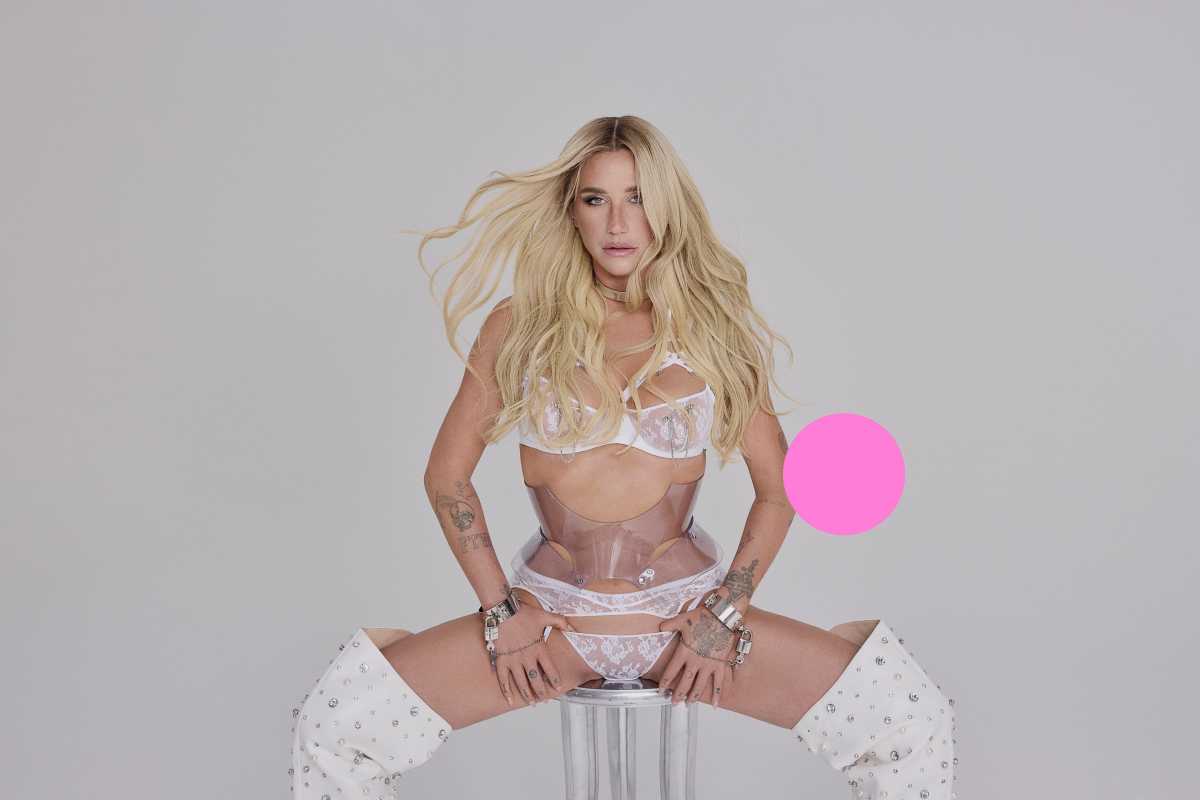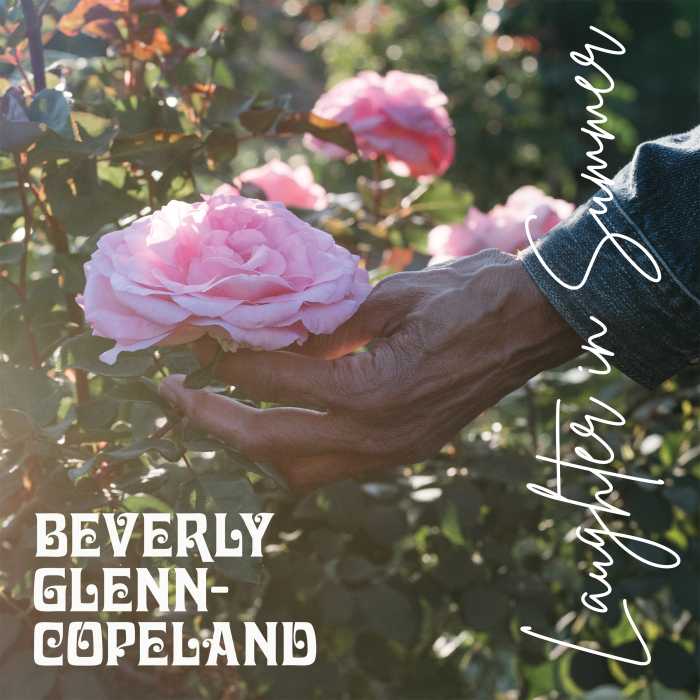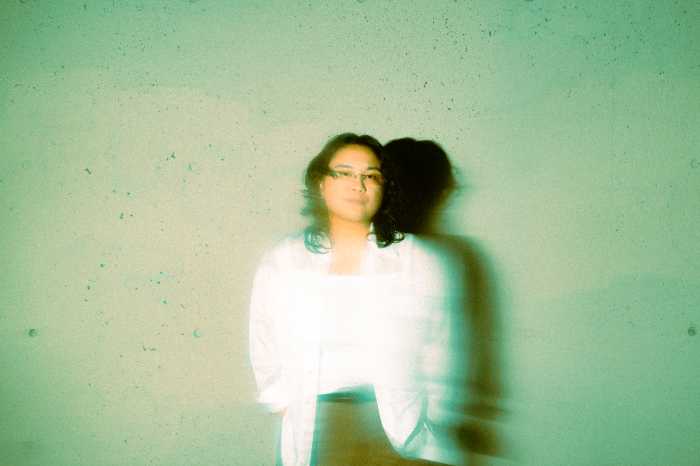This month, Gay City News’ attention turns to the latest albums from pop singer Kesha and trans producer DJ Haram.
Kesha | “(Period)” | Kesha Records | July 4th
Kesha, who wrote on Instagram in 2022 that she’s “not gay” but also “not straight,” is finally her own agent. After suing her former producer Dr. Luke for sexual assault in a civil case, she remained signed to his Kemosabe label. Even as her songs “Praying” and “Bastard” dissed him, he still made money off them. After her contract with Kemosabe ran out, she’s now started her own label. She celebrates her newfound independence, singing “freedom, I’ve been waiting for you.” For better or worse, “(Period)” is an album for the fans who’ve stuck with her all this time.
The hedonistic attitude of Kesha’s first two albums has been retrospectively dubbed “recession pop.” If her party girl image always came with a wink, the pain she was going through now seeps underneath. Her third album, “Rainbow,” remains her best, finally putting her in control of her own sound. It felt like our first glimpse at a real woman, rather than the image she presented. Although “Praying” was a hit, she’s been outside the mainstream since then, but remains popular enough to play Madison Square Garden.
“(Period)” steps far away from the confessional singer/songwriter mode of “Rainbow.” Kesha’s here to get drunk and laid, with a sense of humor always present. “JOYRIDE.,” the most imaginative song, dances around an accordion, with her voice glitching out. When she sings about being attracted to screwed-up men, on “RED FLAG.,” she stays clear of actually embracing the messiness the song espouses.
“(Period)” becomes a case of diminishing returns. The low-stakes feel can be refreshing, but the album suffers from thin, canned production. The house piano and gospel chorus of “FREEDOM.” are too tinny to land as hard as they try. Its idea of party music settles for formulas too often, such as the Autotuned half-rapping of “GLOW.” “YIPPIE-KI-YAY.” leaps aboard the dubious “stomp clamp hey” 2010s pop-folk revival, while others dip into an extremely mild form of hyperpop. Only “JOYRIDE.” and the club-ready “BOY CRAZY.” rival her best early hits. “(Period)” describes a great night out without bringing its audience along.
DJ Haram | “Beside Myself” | Hyperdub | July 18th
As she releases her debut album, DJ Haram has found herself in a difficult position. She’s one of the few Arab-American women to have become successful producing hip-hop and electronic music. As a desire for Arab representation grows, she’s found herself tokenized by fair-weather friends. In an interview with the Quietus’ Jesse Dorris, she relates “I used to take a DJ gig and realize they booked me because they wanted some racialized, gendered representation and I had to be the person that gave that.” “Beside Myself” responds to this perception by giving voice to the internal conflict. “Distress Tolerance” re-creates a chaotic conversation in her head.
The title has several meanings, one quite literal. DJ Haram opens her album up to many guests. 700 bliss, her duo with queer poet/rapper Moor Mother, gets back together for “Lifelike.” Even her field recordings allow a subway conductor to have a voice. During “Remaining,” Palestinian rapper Dakn’s words bump against Aquilles Navarro’s keening trumpet. The lyrical boasts of “Fishnets,” an all-woman rap posse cut featuring Bbymutha, She Ray, and August Fanon, slap against violins moaning slowly in the distance.
DJ Haram creates a cultural synthesis, working within American forms like hip-hop while retaining Middle Eastern tones and scales. The latter are growing increasingly prominent in her music. A wailing horn — sometimes played back as a sample, elsewhere created by synthesizers — is one of her album’s central motifs. “Voyeur” places dharbuka, an Arab percussion instrument, against it. The album maintains a nervous mood even when tinged with excitement, like the nauseous Jersey club music of “do u love me.” Much of that comes from its skittery rhythms. Details get submerged in the mix — it’s hard to pick out anything besides guitar and percussion on “IDGAF” — but they contribute to the overall mood. Ironically, “Loneliness Epidemic” achieves a party mood. “Sahel” paces through an infinitely shaded set of beats.
DJ Haram’s sound design slams together dozens of tiny particles. They don’t coalesce into soothing music, but they add up to a harsh beauty. (Compared to her 2019 debut ep “Grace,” “Beside Myself” is much denser.) Her vocals’ quiet tone enhances their force. Like so much of 2025’s best music, “Beside Myself” embodies the mental cost of experiencing the rise of fascism: “I see evil, I can’t handle” is a credo for this moment.



































